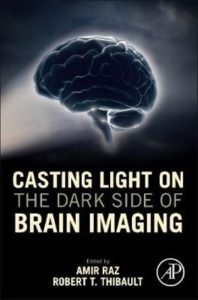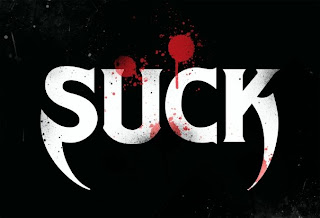Possibly the worst tactical mistake you can make, politically, is to make fun of an opponent’s lack of intelligence. I say this because not only is there an influx of politically active people on the world stage who fall under the category of “lacking intelligence”, but there is an absence of memory about how publicly scorning such people only empowers them (and, most importantly, voters).
It’s hard. When someone says something completely false – and stupid – the well-educated person’s knee-jerk instinct is to say “You’re an idiot”. Fair enough. But, it’s the taunting that backfires. For example, look at Sarah Palin. I think she represents a necessary evil in American politics: a self-elected Voice of The People who campaigns on the rather wispy argument that the US is run by a bunch of elitists who don’t understand “real Americans”. It’s all a bunch of crap (by elite, do you mean they have an education? don’t you want the people running your country to have an education? to have seen something beyond the borders of your own country for sake of perspective? who the hell are ‘real Americans’? does this imply ‘false Americans’?), but it serves its purpose. And what do her critics – who, to be fair, constitute most of the people on the Earth – do? They make fun of her.
She’s an idiot. A moron.
The problem is, she’s a moron who appeals to a growing number of disenfranchised people who are looking for a proud, politically and morally uncomplicated banner to wave proudly over their heads. And yes, we can argue about why this is and who the supporters are, but – not to say that history is a 1:1 reflection of the future, because it’s not – history has shown that history doesn’t give a shit about those questions. Reflection happens in the future – that is, after we politely chortle to ourselves at all the nonsense of Palin, her “Tea Party”, and her scads of uncivilized minions. That is, after they take the next election.
The elitist/commoner non-argument (it’s a ploy, really) is as old as politics itself. We’ve had something very similar (and thankfully, tamer) happen in Canada. Our current government is a coalition of reformer factions who merged in the late 90s/early 00s to take over the Canadian Progressive Conservative Party (this would be the same as if the current “Tea Party” took over the Republican Party). They removed the word Progressive from the name and lead the country as a minority government. They too campaigned (and still do, whilst in power no less) as the party of the People, as an alternative to whomever stands against their policies (aka “the elites”). It’s old hat.
Before they came into power, they – as the Alliance Party – tried very hard to unseat the ruling Liberal government (tangent: can you imagine if the US had a party called the Liberal Party?). Their leader was a man named Stockwell Day, who rode onto the scene (quite literally) on a Sea Doo. He was all charisma and commonality. But as time wore on, people found that his reformist ideas weren’t very deep and a lot of the people in his party were either yahoos or – elitists? – began distancing themselves away from him. The chrome on his veneer began to chip away and the man became a running gag; the Prime Minister of the day, Jean Chretien, joked openly that he preferred having Day in opposition (as to suggest his chances were that much better to win elections against the Alliance). Long story short, all it took was a few years, a “unite the right” movement, and a new leader who could streamline (that is, squelch) internal strife and you had a winner. That is to say, the toppling of a government.
I suppose what I’m saying is this: making fun of people like Sarah Palin because she doesn’t come across as polished, or sophisticated, or well-educated is ineffective. All you manage to do is inflame the passions of people – many of whom may have been too lethargic or apathetic to vote in the first place – so that they start creating local campaign offices. There is nothing like being intellectually offended to raise someone’s ire – anyone’s, no matter where or how they were raised. Raise the ire, that is, so as to make them active agents on behalf of those scorned by the “elites”. Agents of “change”.
George W. Bush was publicly derided by intellectuals and non-intellectuals alike in almost every conceivable medium and venue, yet he served two four-year terms as President of the US. If you want to take down the likes of Palin, take her down as you would take down Reagan or Thatcher – that is, as an opponent worthy of debate, worthy of your concern. To do less would be to knot your own noose.
 The gold standard for looking at mental health is through what’s called a biopsychosocial lens, a flexible model that allows professionals to consider the biomedical (for example, thyroid issues, dementia), the psychological (traumatic experiences, abusive relationships), and socio-economic factors (unemployment, impoverished environment) that might be at play in the mental health profile of any given individual, even if it ends up a combination of one or more parts. In North America there is unfortunately a sacred primacy around the biomedical approach to mental health, with the psychological and socio-economic as (at best) secondary considerations at the table of funding and education. At this moment there are medical doctors losing sleep wondering how to beat the shame of knowing there is a patient in their care whose condition might be psychogenic (meaning, whose pathology is not, strictly speaking, a biomedical end product). Continue reading “Book Review: Casting Light on the Dark Side of Brain Imaging”
The gold standard for looking at mental health is through what’s called a biopsychosocial lens, a flexible model that allows professionals to consider the biomedical (for example, thyroid issues, dementia), the psychological (traumatic experiences, abusive relationships), and socio-economic factors (unemployment, impoverished environment) that might be at play in the mental health profile of any given individual, even if it ends up a combination of one or more parts. In North America there is unfortunately a sacred primacy around the biomedical approach to mental health, with the psychological and socio-economic as (at best) secondary considerations at the table of funding and education. At this moment there are medical doctors losing sleep wondering how to beat the shame of knowing there is a patient in their care whose condition might be psychogenic (meaning, whose pathology is not, strictly speaking, a biomedical end product). Continue reading “Book Review: Casting Light on the Dark Side of Brain Imaging”

 I’ve noticed more and more over the last decade that less and less people want to use the phone. I cannot help but draw a correlation between this observation and the ubiquitous rise of digital communication. Email? Sure. Text? Yup. And what’s wrong with this, you might ask? On paper it would objectively appear that text-based communication (particularly including social media) is superior at transferring information without error, if only us pesky humans didn’t make mistakes. And this last part is key: we are not objective, we balance the objective world with our much less easily measurable experiential (or personal) reality; this second reality is informed by our experiences, which are diverse and sometimes punctuated by trauma or loss. When we talk to someone on the phone we are leaving ourselves prone — to fallibility (stammering, going off on a tangent), or having our hesitations read as something we may not otherwise wish to reveal.
I’ve noticed more and more over the last decade that less and less people want to use the phone. I cannot help but draw a correlation between this observation and the ubiquitous rise of digital communication. Email? Sure. Text? Yup. And what’s wrong with this, you might ask? On paper it would objectively appear that text-based communication (particularly including social media) is superior at transferring information without error, if only us pesky humans didn’t make mistakes. And this last part is key: we are not objective, we balance the objective world with our much less easily measurable experiential (or personal) reality; this second reality is informed by our experiences, which are diverse and sometimes punctuated by trauma or loss. When we talk to someone on the phone we are leaving ourselves prone — to fallibility (stammering, going off on a tangent), or having our hesitations read as something we may not otherwise wish to reveal. I don’t have a lot of time or head space for reviews of any kind these days, however I try to make an exception for work which deserves attention, if only for sake of better exposure and discussion.
I don’t have a lot of time or head space for reviews of any kind these days, however I try to make an exception for work which deserves attention, if only for sake of better exposure and discussion.